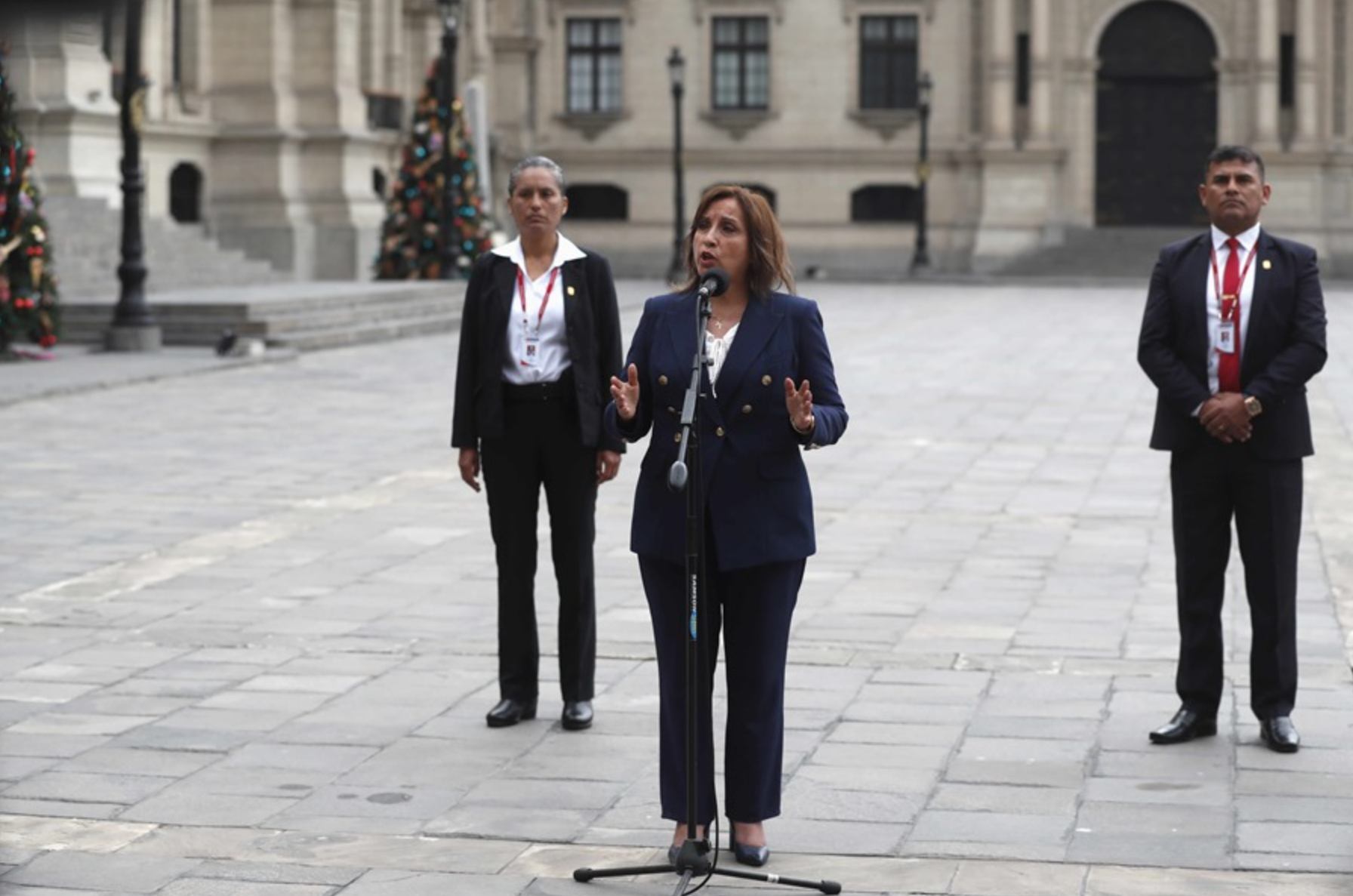The silence of Peru’s president, Dina Boluarte, and her prime minister, Alberto Otárola, in the face of preliminary investigations into the massacres that took place between December 2022 and March 2023, in which members of the national police openly shot at demonstrators and left a toll of 77 victims, highlights the constant institutional isolation in the face of citizens’ demands. This seems to be a sort of pact between those who hold power in the state with the objective of avoiding at all costs any alteration in their power positions.
A large part of the judiciary is also in this isolation, since the Attorney General, Patricia Benavides, avoids answering questions. Furthermore, it has been mentioned that she did not meet the necessary academic requirements to have attained such a high position. There is also concern regarding her open intention to intervene in the dismantling of investigations that benefit a criminal network operating within the judiciary.
Faced with these latest maneuvers, the National Justice Board (JNJ), an autonomous body in charge of guaranteeing the independence and suitability of the people operating in the justice system and the electoral authorities, initiated an investigation. This provoked a counter-offensive against this body, which has become a strategy of intimidation. In this context, the Congress of the Republic joined the Attorney General’s Office in ordering a summary investigation against the members of the JNJ. However, there were no objective legal grounds or disciplinary cause foreseen in the ordinance to carry out such an action.
In an attempt to promote reasonableness, the Inter-American Court of Human Rights communicated the need to respect the guarantees of due process and the principle of legality. They warned that failure to do so would substantially affect the activities of the JNJ, which in turn would contribute to the weakening of judicial independence in Peru.
Institutional isolation has also been an objective of Congress. In the face of constant threats to political stability during Pedro Castillo’s administration, the citizenry demanded new general elections. Initially, this proposal was approved in a first parliamentary vote, but later an explicit alliance among antagonistic forces was formed to ensure the continuity in the mandate of both the current president and the representatives.
However, as part of an agenda that seeks to counteract attempts to weaken the rule of law, the judiciary lifted a judicial measure that prevented the attorney general’s investigation, which has placed her in a situation of serious vulnerability.
On the other hand, Vladimir Cerrón, Pedro Castillo’s former partner and operator of one of the parliamentary forces that disintegrated in the political process, ended up allying with his more conservative adversaries in the Peruvian Congress. Nonetheless, the agreements have had a limited impact in other sectors of the state, since he has recently been convicted in a second instance for the crime of conspiracy harming the state.
In this scenario, the conflict between citizens and the government is latent, representing a special challenge that the elected authorities have imposed on themselves due to their unpopularity. Their objective is to finish their mandate and hand over power peacefully through elections, which for many seems to be a minefield. The president and the representatives rehearse authoritarian gestures, improvise, and, at times, act with indifference to the demands of the citizenry, which makes the path still uncertain.
*Translated by Janaína Ruviaro da Silva from the original in Spanish.











